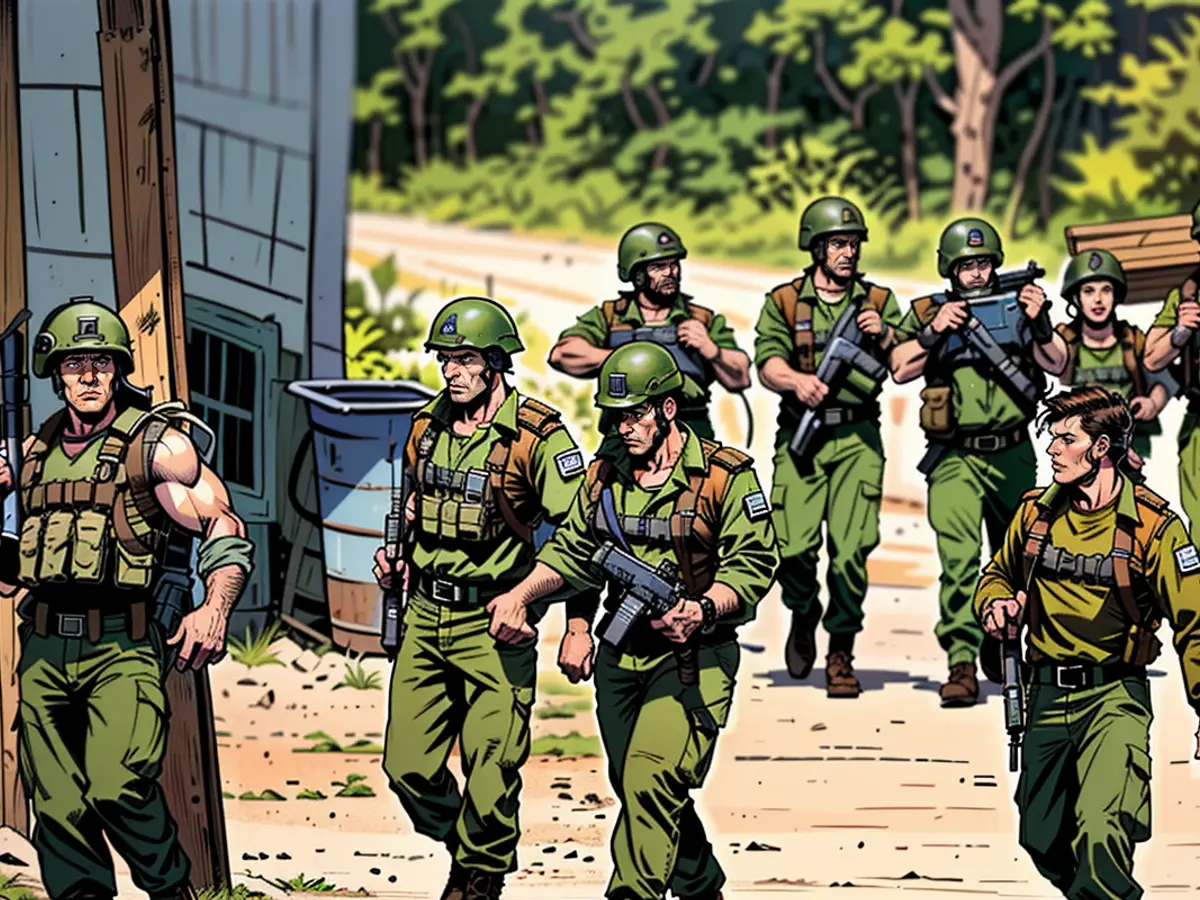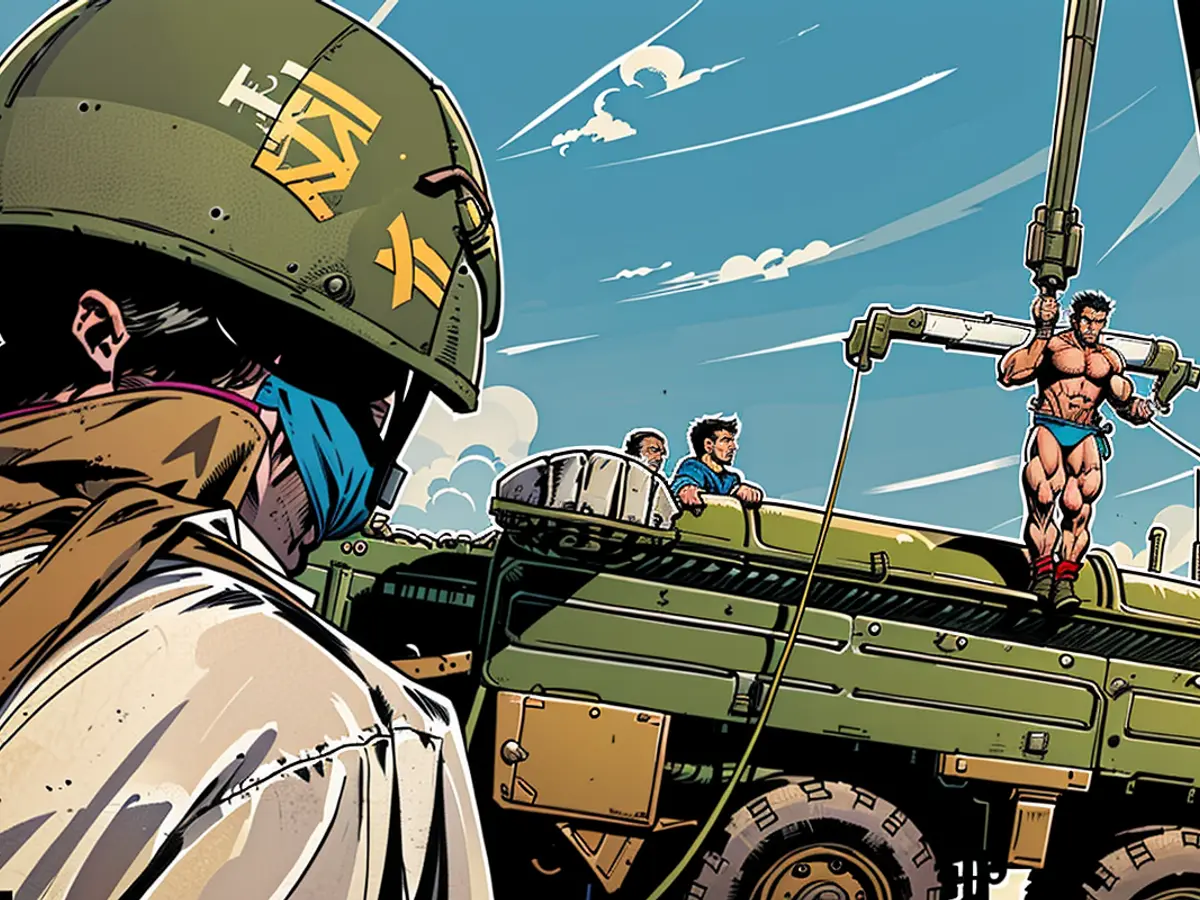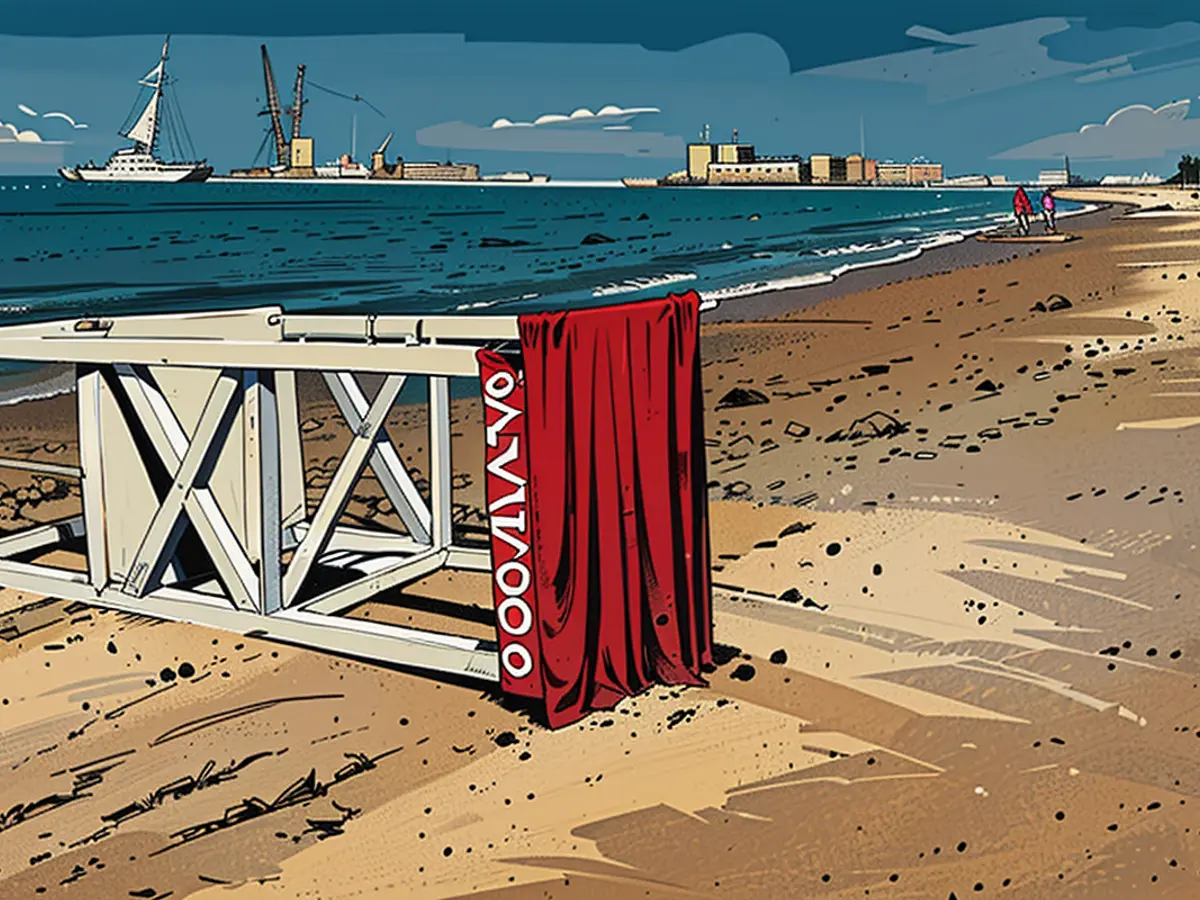Middle East Conflict - Security Council of the UN approves plan for truce in Gaza region
The UN Security Council has approved a multistage proposal for a ceasefire in the Gaza conflict put forward by US President Joe Biden. This decision, made by the UN's most powerful body in New York, marks the first time the council has endorsed a particular plan for a cessation of hostilities since the conflict began. The resolution was passed with 14 out of 15 votes in favor, with Russia abstaining.
This legally binding endorsement supports Biden's proposal, which seeks to end fighting in the Gaza Strip in three stages. So far, only Hamas has not publicly agreed to the plan. While there has been no confirmed approval from the government of Israeli Prime Minister Benjamin Netanyahu, the resolution states that Israel has accepted the plan and urges Hamas to do the same. It also calls on all parties to act immediately without any conditions.
Hamas welcomed the Security Council resolution and committed to maintaining indirect negotiations for an agreement. However, their acceptance of the plan is unclear. Previously, Hamas and Islamic Jihad representatives had been discussing a truce, the release of captives, and Palestinian prisoners from Israeli prisons through mediators.
Prior to this, on Monday, Hamas and Islamic Jihad representatives had met in Qatar, stating that any agreement must include a permanent end to the war, complete Israeli withdrawal from Gaza, comprehensive reconstruction of the coastal strip, and an end to the blockade.
Biden's plan, proposed at the end of May, suggests an initial complete ceasefire lasting six weeks. During this time, a specific category of hostages would be freed. In return, Palestinians held in Israel would be released. In the subsequent phase, the fighting would cease permanently, and the remaining hostages would be freed. Finally, the rebuilding of the Gaza Strip would commence in the final phase. This is the 11th Security Council resolution since the beginning of the Gaza Strip conflict. Only four have been adopted.
The European Union has called for the immediate implementation of the proposal in the evening. EU Foreign Policy Chief Josep Borrell made the announcement. The EU fully supports Biden's comprehensive plan, according to the foreign policy representative.
The Security Council's resolution highlights the importance of adhering to the vision of a two-state solution—one where Israel and Palestine can peacefully coexist. This vision involves reuniting the West Bank and Gaza Strip under the Palestinian Autonomous Authority's control, which Israel refuses to accept.
On October 7, terrorists from Hamas and other extremist groups in the Gaza Strip infiltrated southern Israel, killing over 1200 people and abducting more than 250 hostages. This event triggered the Gaza War. Since then, over 37,100 Palestinians have been reportedly killed, with around 85,000 injured according to official reports. These statistics cannot be independently confirmed as they do not distinguish between fighters and civilians.
The Israeli army is the subject of strong international criticism for its actions in the Gaza Strip and the high rate of civilian casualties. Humanitarian organizations describe the situation in the Gaza Strip as catastrophic for its population of over two million people.
US Secretary of State Antony Blinken has been pressing Hamas for a ceasefire while on his eighth visit to the Middle East since the war began. Today, he will meet with Israeli State President Isaac Herzog. Blinken is also set to visit Jordan and Qatar as part of his Middle East tour. In Jordan, he will participate in a conference focusing on providing more humanitarian aid to the Gaza Strip.
The Israeli military continues its operations in the central part of the Gaza Strip following the release of four hostages from a refugee camp. The Israeli army is targeting both underground and above-ground terrorist infrastructure as well as rocket launch ramps. Numerous underground tunnels have been destroyed. In Al-Bureidsch, soldiers have reportedly killed multiple terrorists, including a member of Hamas's Nuchba Brigade implicated in the October 7 massacre. The information has not been independently verified. Images from Deir al-Balah show Palestinians mourning loved ones killed in Israeli air strikes.
Hezbollah-controlled areas in Syria have experienced a suspected Israeli attack, resulting in five deaths and several injuries. The Syrian Observatory for Human Rights reported that the trucks transporting the casualties were headed to Lebanon.
In a possible Israeli assault on a Syrian vehicle caravan, five individuals died, and many more were injured. The Syrian Observatory for Human Rights in the UK disclosed that these vehicles were headed to Lebanon, under the control of the Lebanese Shia militia Hezbollah.
A Lebanese security official confirmed that at least nine Israeli rockets had impacted the region. Reports by observers state that Syrian anti-aircraft missiles were launched in a vain attempt to fend off Israeli attacks near the border between Syria and Lebanon. The allegations needed verification initially. There was no reply from the Israeli side yet.
Israel's air force frequently bombards targets in nearby Syria. The Jewish state strives to prevent its foe, Iran, and its allied militias from increasing their military presence in the country. Iran is one of Syria's chief allies. Since the onset of the Gaza conflict in early October, Israeli strikes, which usually aren't recognized by Israel, have intensified.
While the hostilities between Israel and Hezbollah escalated along the Israeli-Lebanese border, Israel's army declared that one of its drones had been downed by a ground-to-air missile in Lebanese airspace, crashing on Lebanese soil. Earlier, two missiles were intercepted from Lebanon in northern Israel.





